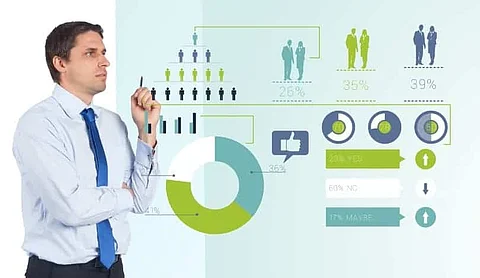

Gartner's 2018 prediction that "By 2021, the office of the CDO will be seen as a mission-critical function comparable to IT, business operations, HR and finance" was certainly prescient, and few would dispute that in 2021, the Chief Data Officer is mission-critical. So now that the CDO has a seat at the decision table, what can we expect this year? How will the CDO use their position of influence to improve the ability of their organizations to make data-driven decisions?
Here are a few CDO moves and practices we're likely to see in the near future.
Except for brand new companies, most have made significant investments in technologies and have steadily built data architecture over time. In most cases this architecture is not optimal for their current needs. However, totally inventing new data architectures may simply be impractical, and in many instances it will be impossible. CDOs, therefore, will likely face up to the facts and embrace the idea that it's going to be much better to leverage software to abstract a virtual layer over complex and messy data infrastructure to clean it up, than it is going to be to reinvent it.
Related to the point above about needing to deal with existing systems, most CDOs either know or will come to accept that moving around massive amounts of data is too costly and slows things down too much to be a solution. Rather than taking the data to the analytics, or trying to take the analytics to the data, they'll once again rely on virtual technologies that create an abstract data layer that allows analytics to be performed on extremely distributed architectures as if the datasets were collected in neatly organized warehouses. The open source Trino project, which allows SQL queries to be executed over highly distributed and siloed environments, offers the best look at how this can work. Look to CDOs to leverage more of this kind of thinking, and seek out more technologies akin to Trino.
At this point it should be acknowledged that Data Catalogs and other solutions have given companies what they need for governance, and at this point it ought to be considered table stakes. CDOs need to be spending their time thinking about the next step. IDC found that 80 percent of the top KPIs used to measure chief data officer performance are business-oriented. Furthermore, according to Gartner, as of 2018 the biggest chunk of a CDO's time— 45 percent–was marked for value creation and/or revenue generation, compared to only 28 percent dedicated to risk mitigation. Look for CDOs to shift even more time in this direction, as competition between companies continues to heat up.
As the general move toward abstracting away historical technical hurdles (such as finding data in messy, complex systems) continues, CDOs will have both the ability and the expectation to place more focus on how data can serve the business. We're likely to see the CDO spend less time on back-end technical issues, and more time understanding what business executives really need to know.
As a case in point, IDC says 59 percent of chief data officers report to a business leader, and not the CIO. Additionally, 80 percent of the top stakeholders chief data officers support are businesspeople. In fact, a New Vantage Partners survey found that only 14 percent of Fortune 1000 firms even feel that a CDO needs to have a data scientist or technology background.
CIOs and CDOs tend to have different directives–where CIOs are primarily concerned with cost-savings and may have a greater tendency toward more traditional thinking, CDOs are looking to drive revenue. According to New Vantage Partners 49 percent of executives at Fortune 1000 firms feel that a successful chief data officer must be an external change agent who offers fresh perspectives. Of course, in the most successful environments CDOs and CIOs will work as partners to achieve innovation and drive revenue while simultaneously minimizing costs. But, in organizations where the CIO is a little too mired in tradition, expect CDOs to more frequently sidestep their decisions.
There's still an enormous chasm between the data teams that manage and analyze the data, and the business people that need answers from the data. Some of this stems from business processes, and some of it stems from technology. In either case, AI is going to need to step in and bridge this chasm to create a "data democratic" future. Expect CDOs to pursue AI-driven solutions that democratize access to data intelligence with the same vigor that other departments are adopting it for fraud detection, advertising, marketing and other areas–perhaps even more vigor.
In conclusion, expect 2021 to be an exciting and dynamic year for the CDO. We'll see CDOs increasingly put these concepts into practice. And what about those who aren't already considering these ideas? They probably should.
Kaycee Lai, founder and CEO of Promethium (Menlo Park, California), has nearly 20 years of experience in the technology industry, and has led global operations & product management for both startups and Fortune 500 companies. A self-proclaimed "data geek", Kaycee began his career as a business analyst working with data, databases, and business intelligence solutions at companies such as EMC, Microsoft and The Federal Reserve.
Join our WhatsApp Channel to get the latest news, exclusives and videos on WhatsApp
_____________
Disclaimer: Analytics Insight does not provide financial advice or guidance. Also note that the cryptocurrencies mentioned/listed on the website could potentially be scams, i.e. designed to induce you to invest financial resources that may be lost forever and not be recoverable once investments are made. You are responsible for conducting your own research (DYOR) before making any investments. Read more here.
